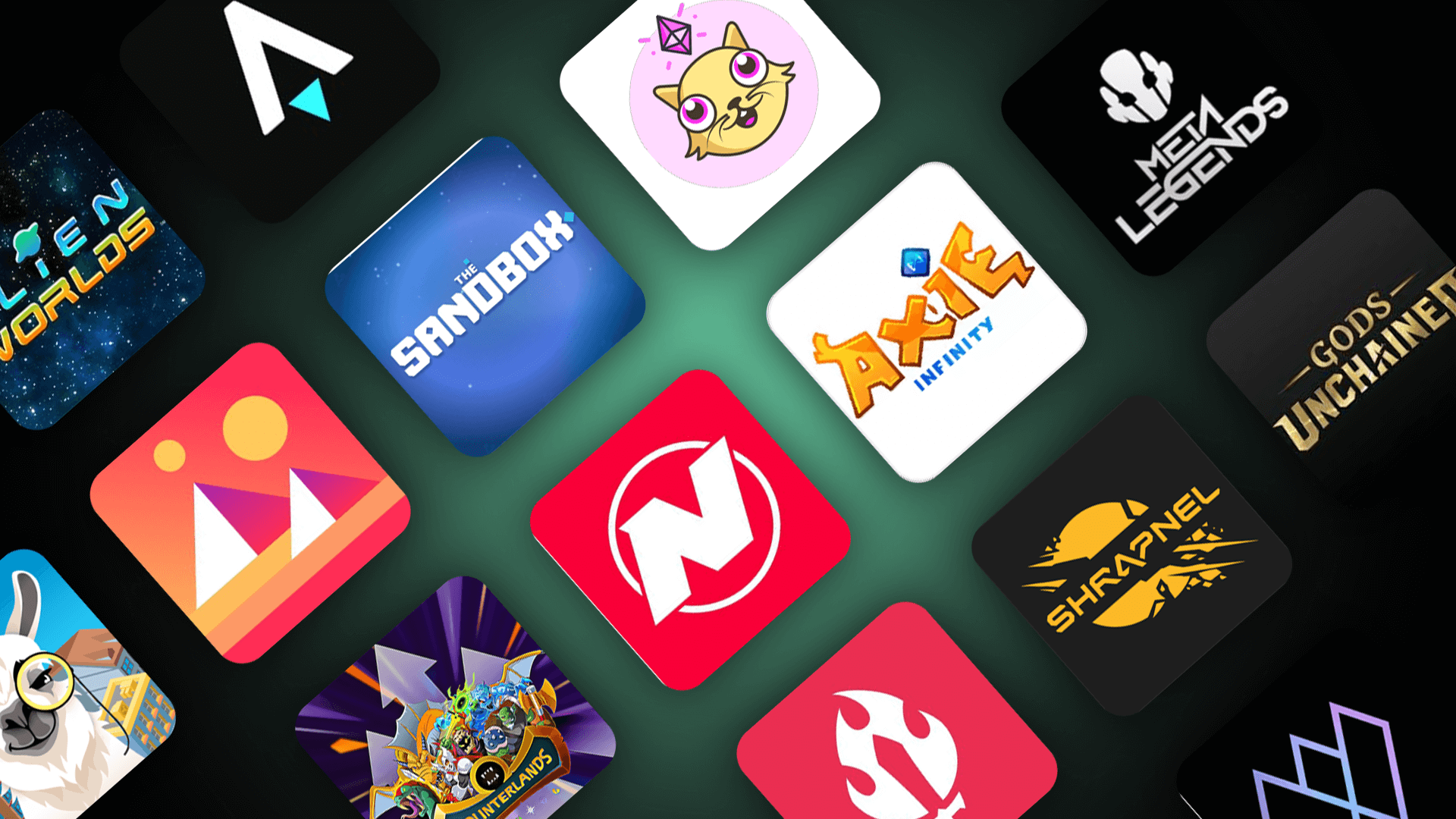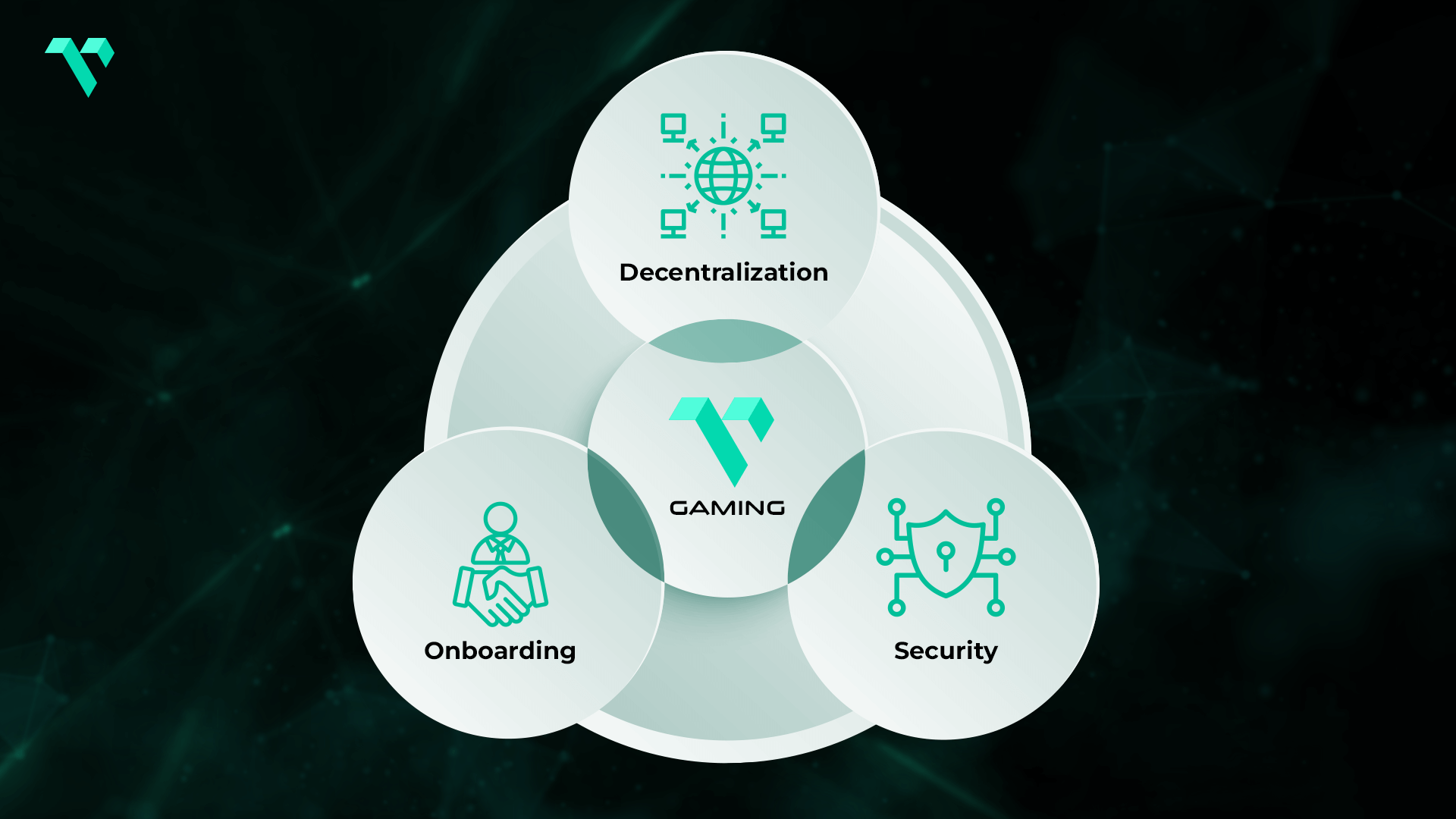


Over the years, blockchain gaming has become one of the most prominent industries, gathering the attention of investors and gamers. The market is predicted to grow exceptionally, surpassing $50 billion by 2025. Moreover, investing in Web3 gaming has hit $1.1 billion in the second quarter of 2024 since 2022.
Major players such as Dencentraland, The Sandbox, and Axie Infinity are becoming notable names, capturing the attention of millions of users and potential investors. But what is blockchain gaming, and why has it become the talk of the town lately? This blog will explore crypto games, their benefits, and their challenges.

Gaming implements blockchain technology into video games, offering benefits such as actual item ownership, the ability to earn cryptocurrency, and decentralized marketplaces. NFT gaming has the great advantage of allowing players to own, sell, and even trade their digital items independently, unlike traditional games, where developers control in-game assets.
CryptoKitties, with its revolutionary idea of gathering and nurturing virtual cats, has completely changed the course of the blockchain gaming industry. It is one of the very first P2E crypto games that allow you to trade and breed digital kittens.
Splinterlands is a tactical, digital card game that leverages blockchain technology to showcase each card as a unique NFT. This allows the players to trade, collect and battle with their cards in an online environment.
This near-future sci-fi game is an incredible example of blockchain gaming as it incorporates NFTs allowing the players to mine for resources, explore space and claim to new frontiers building a competitive gameplay experience.
Memebet ($MEMEBET) is another great example as one of the best play-to-earn blockchain games this year. In this game, the native token of the Memebet Casino allows the players to wager their favorite meme coin such as DOGE, SHIB and PEPE. This casino does not require any KYC; being available globally through Telegram app. With more than 1,000 games such as live games and slots, Member has fun games for everyone.

Blockchain has given rise to a new idea called ‘play-to-earn.’ With this concept, players can earn cryptocurrency by playing games, winning battles, and completing tasks. This model can turn a mere hobby into a viable source of income. For example, Axie Infinity players reported that they earned more than the average wage in their countries by playing the game.
This model has gained traction, as players are incentivized to invest time and effort into games, knowing that their in-game achievements can translate into real-world assets.
Actual item ownership is one of the most significant benefits of blockchain gaming. Blockchain technology provides players with true ownership of in-game assets via NFTs. Players can buy, sell and trade items on various marketplaces. This retains control over their digital possessions. A prime example of this can be, Nitro League which utilizes iconic Shelby cars as in-game assets, allowing players to trade these vehicles in a dynamic marketplace. This sense of ownership enhances player’s engagement and adds great value to their gaming experience.
Blockchain technology offers a transparent and secure environment for gamers. Due to its decentralized nature, no single entity controls the network, reducing the risk of hacking. Moreover, the openness of blockchain gaming allows people to identify the authenticity of the games and their rarity.
Dynamic NFTs take over the concept of traditional NFTs by allowing them to evolve and change based on the player's interactions and/ or game events. This enables the developers to create a versatile, engaging and an immersive gameplay experience, as players can influence the attributes and overall appearance of their NFTs. The potential for dynamic NFTs creates new paths to novel game mechanics that keep the players invested and excited about their virtual assets.

Though there are several key benefits for blockchain gaming, it may be a little complicated for beginners. To understand NFTs, navigating decentralized exchanges and setting up digital wallets can be complex for newcomers. However, the emergence of account abstraction tools has made the onboarding process easy, for easier key management and smoother user experiences.
It is said that ‘With great powers comes great responsibility.’ Blockchain technology hands over this responsibility to its users via blockchain private keys. Users are responsible and entitled to only use their keys and are authorized a transaction. This can be a challenge for game developers who want to create on-chain games with users performing more actions rather than buying cards or using an in-game marketplace.
The long-term vision for blockchain games is to operate entirely on-chain, powered by smart contracts. However, the current limitations in blockchain scalability create significant roadblocks to making this a reality. Building a game exclusively through smart contracts is a tough challenge, as video games need fast processing and minimal delays. It is something existing blockchain networks struggle to provide. Trying to develop a high-computation game on today's blockchain infrastructure would likely result in frustrating lag for players, making it far from an ideal gaming experience.
Imagine this: a virtual world where you own everything you earn. Sounds fascinating. Every battle you win, every potion you make, belongs to you. You can trade your creation for cryptocurrency and brag about your most prized possessions. Blockchain gaming makes you promise to be the master of your own domain.
To make this picture better, let’s take a look at Virtua, a widely popular, virtual gaming platform. In Virtua, the platform combines gaming, social interaction, and real-world economics, allowing players to explore, create, and engage in a thriving virtual ecosystem.
Trinity3 is a dynamic games marketplace designed to attract new users to the world of Web3 gaming. The platform offers quest-based campaigns and rewards users through tournaments, offering incentives like NFTs, tokens, and more.
Trinity3 incorporates a system of leaderboards and ranks to endorse competition, creating an engaging environment for both casual and competitive players. By offering rewards and innovative gaming experiences, Trinity3 helps Web3 games grow their player base while giving users chances to earn and explore blockchain games.
In conclusion, Blockchain gaming is transforming how we observe the gaming landscape. It offers transparency and unprecedented opportunities, such as actual item ownership, secure transitions, and excellent earning potential. However, aside from its challenges, like complexity for beginners and regulatory concerns, blockchain gaming has the potential to change the course of the gaming industry.
Thus, there are endless possibilities in this exciting world of blockchain gaming, and the future is bright. So, gear up and dive in to play like never before!